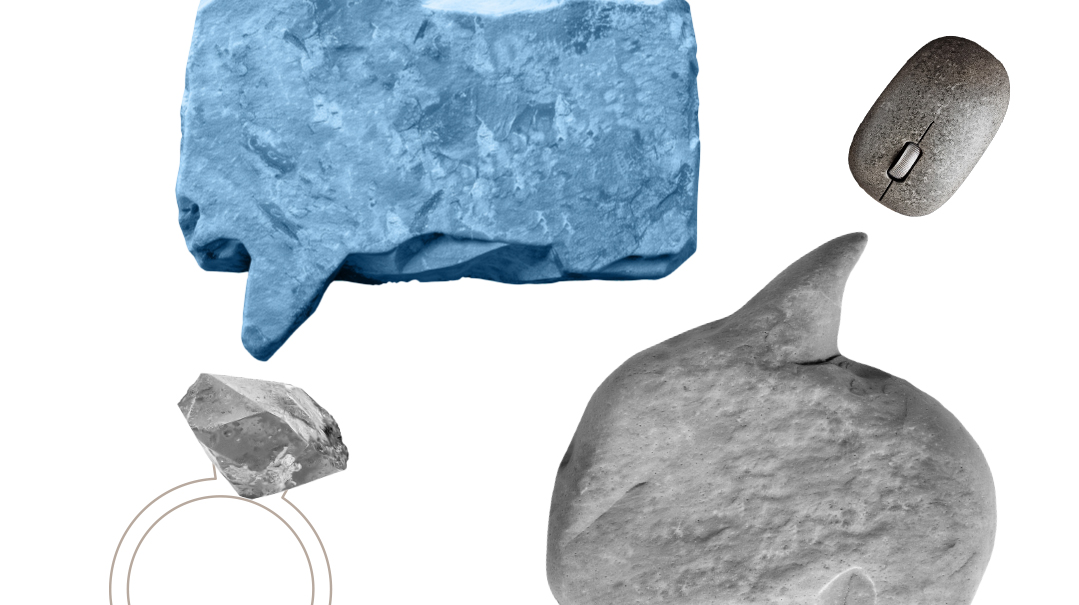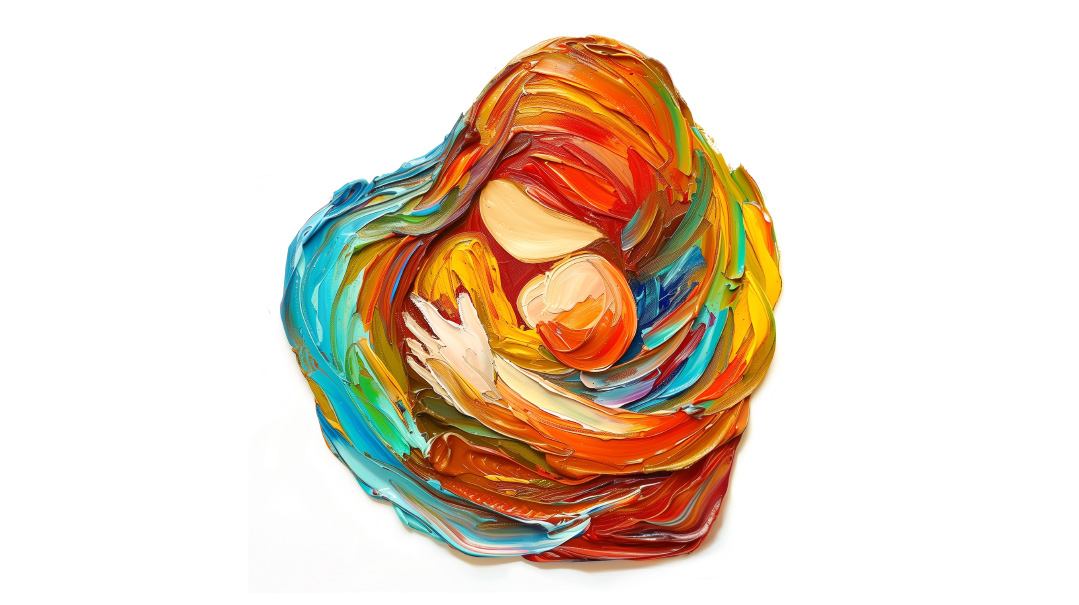Mazi Melesa Pilip
| February 6, 2024Fighting for Israel in a different uniform

The New York Congressional candidate talks to Family First about her childhood in Ethiopia, making aliyah, serving in the IDF, raising seven children while in the political limelight, and what she’ll fight for if she’s elected
Mazi Melesa Pilip is adored in my community of Great Neck, New York. Most of my neighbors have a sign with the word Mazi in bright red letters prominently displayed on their front lawns, alongside their “I Stand With Israel” sign, and pictures of the hostages in Gaza. When Mazi ran for the Nassau County Legislature in 2023, my shul WhatsApp group blew up with messages of support. Guys please text everyone you know locally and beg them to vote for Mazi Pilip, read one message. Another said, Vote like your lives depend on it. They just might!
This December, Mazi was declared the Republican nominee for the United States House of Representatives New York 3rd congressional district. It’s a special election that was set off when George Santos was expelled from Congress for ethics violations. Mazi is running against Tom Suozzi, a seasoned politician who previously ran for New York governor against incumbent Kathy Hochul in the Democratic primaries. Overnight, Mazi went from being a beloved member of the local community (she jokes that her constituents practically do Bircat Kohanim when they see her) to a national figure. Her every campaign step is covered by Fox News, the New York Times, and the New York Post.
Mazi happens to live a few blocks down from me in Great Neck. I’ve seen her at shul, the kosher grocery store, and community events, but I had never spoken to her before. When I heard she was running for Congress, I reached out to her team to invite her to my home for an interview. Mazi doesn’t accept many interview requests — as she later admitted to me, the mainstream media is always trying to trip her up, and put everything she says in the worst possible light — but since I’m a neighbor, she agreed to a rare, sit-down interview.
On a Friday afternoon, I welcomed Mazi into my home. She walked in wearing a white jacket with an American flag pin, as well as a star of David necklace. She was holding a bag from the local kosher bakery, which she handed to me with a smile. “It’s from Noir Bakery. I picked it up this morning. I just love their challah.”
She had spent the week in Washington, D.C. fundraising, meeting with members of Congress and attending a homeland security hearing, but she was back home in time for Shabbos. We both sat down at my kitchen table, where I had arranged some fruit and cookies, and we started chatting about her fascinating life story.
An Ethiopian Jew, Mazi was born to Orthodox Jewish parents who did farm work in a poor, rural African village. “I grew up without heat or running water,” Mazi shared. “When we wanted water, we would walk to a well with jugs. For heat or cooking, we had to burn wood outside our house.” Mazi sometimes had shoes, and sometimes didn’t, depending on how well her parents were doing at the time.
Mazi’s parents kept Shabbos, but they tried to hide their Jewish identity from their neighbors due to anti-Semitism. In the privacy of their home, her grandmother would talk to her about the land of Israel and the holy city of Jerusalem. Together, they would pray that, one day, they would merit to live there.
In 1991, when Mazi was 12 years old, her family’s dream came true. Her whole family was airlifted to Israel as part of Operation Solomon — a covert Israeli military operation that transported over 14,000 Ethiopian Jews to Israel.
When the plane landed, her family cried and kissed the ground. Mazi was struck by how beautiful and full of light the land of Israel was. She was also grateful for how much help the Israeli soldiers provided.
Still, it was a big adjustment coming from a third-world country. “Using advanced technology took some getting used to,” Mazi explained. The first time she stepped into an elevator, she had no idea what to do. Growing up without electricity, she had no exposure to basic appliances we take for granted like refrigerators, washing machines, and vacuums.
She also had to learn Hebrew and adjust to an entirely different culture. “The biggest difference was the respect for parents. In my culture, respect for parents was almost biblical.” She was shocked at the way some of the Israeli teenagers would speak back to their parents and elders.
Making new friends was difficult for Mazi —aside from the language barrier, there was a cultural and racial barrier. “We were new to the Israelis, and they were new to us,” she told me. She was sent to boarding school when she was 12 because her parents wanted her to have a more structured environment and education than she could receive at home. At school, she was one of the only Ethiopian girls in her class. It was hard to be different, but Mazi was tenacious and focused on her schoolwork and making her parents proud.
At 18, Mazi enlisted in the IDF and served as a gunsmith in a paratrooper unit where she oversaw all weapons. She served for a year and nine months. She was grateful to be able to give back to the country that had given her family so much. She credits her time in the army for teaching her strength and discipline — two virtues that would help her throughout her life.
Mazi went on to earn a bachelor’s degree in occupational therapy at the University of Haifa, and a master’s in diplomacy and security at Tel Aviv University. It was while she was in college that she met her future husband, Adalbert Pilip. The grandchild of Holocaust survivors, he was born in the Ukraine, but grew up in America. He was in Israel at the Technion for medical school.
Despite their different backgrounds, they were immediately drawn to each other. Even now, Mazi’s face lights up when she speaks about her husband. “He’s a wonderful human being, and we both share respect for parents as an important value. He has so much respect for my parents and my culture.”
Their budding relationship met some hurdles. “People said to my husband, ‘Wow, why are you dating a black woman?’” Mazi related with a shrug. “Some people are ignorant, but I always try to see the good in people. I don’t focus on the negative.”
Even though Mazi knew early on that Adalbert was her bashert, her one hesitation was that marrying him would mean leaving Israel, a place she now considered home. “I was finally comfortable in Israel,” she explained. “After high school, the army, and my degrees, I had adjusted. To start again, as an immigrant, away from my family — it was very hard.” Her parents and three sisters are still all in Israel.
In 2005, the Pilips moved to the United States, settling in Great Neck. Adalbert began practicing cardiology and Mazi focused on raising their seven children with a blend of both their cultures. “I make the kids Wat, a spicy Ethiopian stew, and my mother-in-law makes us cheese blintzes for Shavuot, which I’ve come to love!” Mazi exclaimed.
Mazi is a person who likes to get involved wherever she is. In Great Neck, she became the vice president of her shul, Kol Yisroel Achim, and was part of a community effort to revitalize Great Neck.
Her work caught the attention of Pedram Bal, the Persian-Jewish mayor of Great Neck, and he told Joseph Cairo, the GOP chairman in Nassau County, that she was someone to keep an eye on. Cairo actively wanted to make the Republican Party more diverse because growing up as an Italian-American, his family didn’t feel welcome in the GOP. In 2021, Cairo asked Mazi if she would be interested in running for Nassau County Legislature.
Around that time, Gaza was sending thousands of rockets into Israel. After Israel retaliated, there were anti-Israel protests and other incidents of rising anti-Semitism. “When my parents had asked my son what he wanted for his birthday, he’d answered that he wanted a Star of David necklace. I wasn’t going to tell him, ‘G-d forbid, you can’t wear it,’” Mazi said with a weary sigh. “But deep down, it made me worry. I thought to myself, How am I going to raise my children here? So when I was asked to run for County Legislature, I thought, Maybe this is a good opportunity for me to make a difference.”
A week after Mazi accepted the nomination, she received some exciting news: She was expecting twins. Right after she found out, she called Cairo. “I don’t want this to be a problem for you,” she said candidly. “If you want to choose someone else, I understand.” His reply was swift and sincere: “Congratulations. We’re going to be behind you all the way.”
Mazi campaigned up until she gave birth to the twins. That meant going from synagogue to synagogue trying to get out the word, as well as speaking to people at train stations, park gatherings, and any event that took place in Great Neck. She often slept in different people’s houses on Friday night so that she could walk to the nearby shul Shabbos night or morning to deliver a speech. She gave birth just weeks before the election, and won, flipping the district Republican.
In October 2023, she won reelection against her opponent, Democrat nominee Weihua Yan, by a margin of 60 percent to 40 percent. She dedicated her win to Israel.
When I asked Mazi what prompted her to do that, she burst into tears. “The attack on Israel on October 7 — now I’m going to get emotional,” Mazi said, dabbing her eyes. “I grew up in Israel, I served in the IDF, I was there during the second Intifada, taking my kids to Israel every summer. I never had any fear there, but after hearing what happened, and how evil people can be?” Mazi started to cry harder, and I offered her a tissue. “I was very depressed. I actually refused to campaign for a while.
“I wanted to go to Israel and reenlist in the army, but my sister told me, ‘You have to be strong. You can do more and be more effective if you stay where you are and talk about what happened.’ I realized that I don’t need to wear the army uniform I wore 20 years ago. I can put on a different uniform as an American, a former IDF soldier, and an Israeli, and go to Congress and tell them, ‘This is wrong.’ I won the election, and that was a victory for my Jewish brothers and sisters in Israel.”
Mazi found out about the horrific events of October 7 from a member of her team, who came to her house while she was at home getting ready to celebrate the chag. Her sister is a detective in Israel and after October 7, she went around to checkpoints in Netanya with an M16 making sure they were safe from terrorists.
Around a month after winning re-election, a panel of Republicans from Queens and Nassau Counties selected Mazi as the Republican candidate to run for George Santos’s seat. Mazi spoke to her family and made sure they would be okay with her running for Congress, with all the negativity it could bring to her and her family. In fact, the election campaigning has gotten ugly, and every day I get flyers in the mail attacking Mazi, her family, and her values. Still, her family wanted her to run. They were doing this as a family.
Despite her busy schedule, Shabbos remains the center of Mazi’s week. “Shabbat means a lot to me. I can be busy. I can work every single minute of the week, but when Shabbat is about to come, I shut down everything. I focus on myself, on taking a break, and thanking Hashem. I connect to my family and my children. Shabbat is often the only time that the family gets to sit around and be together.” If Mazi is elected to Congress, she will continue to observe Shabbos in Washington, D.C., just as her parents and grandparents observed Shabbos in Ethiopia.
In Congress, Mazi plans to work on securing the border and halting the influx of undocumented immigrants. Mazi grew animated as she spoke about the crisis at the border: “Millions of immigrants are coming in since Biden took office, and we don’t know if they are criminals or terrorists. This is a big concern for all of us. It’s not that I don’t care about immigrants — I think immigration is a beautiful thing, and it would be wonderful if every immigrant had the chance to live the American dream — but it must be done correctly. Don’t bring millions here and keep them in tents. It’s irresponsible and it’s not good for the American people. Your biggest obligation is to protect your citizens, the American people. Then you help the rest of the world, which is a very nice thing to do. But right now, we have a border crisis. So we must make our borders secure.”
Marveling at her life story, I asked Mazi how she’s achieved so much. Her answer blew me away:
“Nothing about me is so special. I am where I am because Hashem is watching over me. I also owe so much to my parents. They told me to work hard always, don’t compromise, and believe in yourself. And this is what I’m trying to teach my kids as well. Take responsibility and be willing to work hard. In my own life, I don’t take things for granted. Everything I have, I had to earn. That helped make me a strong person.”
If someone had told Mazi, when she was living in Ethiopia without running water, that one day she would move to the United States and run for Congress, she never would have believed them, but here she is. “I owe so much to the great community here — the love is unreal. I am humbled and very thankful for all the support my community has shown me.”
As our interview concluded, Mazi and I snapped a photo together, and I walked her to the door. We wished each other a good Shabbos, and she said that she hopes we get together again soon. As she was leaving, the mail arrived with an advertisement for Suozzi front and center. “Do you get many of these?” she asked with a laugh.
“I do,” I admitted. “They come all the time. I get like three a day.”
“And what about my flyers? Do you get them?”
“Yes,” I said, “but not as many.”
In this election, Mazi is the underdog, going up against a veteran politician. But she’s been the underdog before — as an immigrant, a soldier, and a legislator — and each time she’s pulled through. On election day, February 13, we’ll see if she does it again.
(Originally featured in Family First, Issue 880)
Oops! We could not locate your form.







